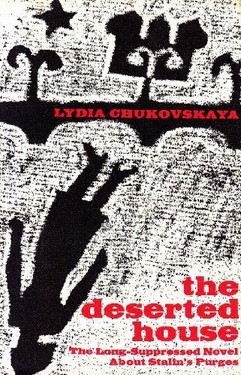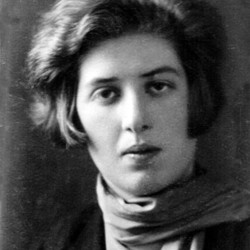The Deserted House is history written from the point of view little people. A doctor’s widow is left after the Russian Revolution with a small son to support. She finds work as typist in a publishing firm, her son grows up a fervently loyal Communist, and he does extremely well as technician in the distant factory to which he is posted. His picture appears in Pravda, and his mother’s cup is full. One day, the Director of the publishing firm is arrested. The Purges have begun. Good citizeness, she has to assume him guilty. Then her son is arrested. But his arrest she assumes to be a mistake: the others in the queues outside the prison of the Public Prosecutor’s office are all relatives of criminals, while she alone is an exception.
As in a thriller, the heroine is suddenly evicted from a placid, everyday existence and turned loose in a nightmare world, going from the tranquil light to a deepening torment of darkness. Gradually it is forced into her consciousness that the political machine has become an insane monster, devouring the innocent, and that her son has been devoured, that she herself, and Russia along with her, has been hideously martyred.
It has to be emphasized that the novel does not earn its praise merely on account of its subject-matter. The widow’s everyday life, and her relationship to a precisely detailed environment, are securely established. To make the dissolution of that life the more effective the narrative is controlled, and well-timed, not in the least diminished by being seen through the perceptions of its simple heroine. Moreover, the novel is well orchestrated, her own drama accented by the corresponding drama in the lives of others with whom she has contact, and by the hideous petty persecutions within the tiny office-world, of which she too becomes victim.
A novelist may start with an advantage in having dramatic events from life for material; but it is not the easiest of tasks to contain their vitality and at the same time impose on them and on the novel a satisfying shape – which is Miss Chukovskaya’s achievement. “The Deserted House” was written in Leningrad in the winter of 1939; miraculously it survived the war and, two years ago, found a publisher in Paris. It will be a great day if, and when, it is published in Russia. <…>



